Distinctive behaviours in animals --- Instinctive or learned?
When I was much younger, I once visited the village with our family and I noticed we had a tall Oak tree a few metres behind the family house. On some mornings and evenings, my cousins and I would sit and watch as squirrels scramble up and down the tree branches. They occasionally slid down to forage around the root of the tree and across our backyard, pick up fallen nuts and bits of leftover food, and then scurry up to stash them somewhere. It was fun and intriguing to watch.
Growing up, I have come to terms with biology, evolution and the animal kingdom. I've gotten to see diverse behaviours from different species of animals, including humans. For example, why do you pick your nose? why does a baby cry when it's hungry? why did the squirrel in my backyard stash stuff? how did it choose where to stash them? how did it even know it was supposed to save? Why do ladybugs (with a short lifespan) fly to a specific migrating point once a year during winter and then a new generation comes on to repeat the same thing, without ever being taught.
Ever familiar with the Cuckoo bird? It doesn't ever get to know its young ones because it doesn't keep or take care of them. Rather, it hides it among the eggs of other birds after throwing one out to avoid the mother's attention and then when the cuckoo chic hatches, it kicks out the other chicks by pushing them out the nest so they fall to their deaths, making it the only survivor- outrageous right? That's right. There's some serious habit that wasn't learnt in any way! How did the cuckoo chick know?
Well, all of the above are some behaviours that are common to some animals and specific to some of them.
By behaviour, we mean an action or series of actions that are performed in response to some stimulus. These stimuli could be as minute as a sound, a smell or a subtle change in the facial expression of another individual. Also, it could be internal, like how a kid would cry on his own in his play pen because he's hungry. Behaviour makes a large part of us and our survival since it is usually the first line of response to any kind of change within and around us.
Scientists who study behaviour tend to approach it in two perspectives: How and Why.
Of course, "How" questions tend to demystify and understand how the behaviour occurs, and to investigate what triggered it. So we know a squirrel hides its nuts, but how does it choose which nuts to bury? and how does he choose where to bury them? These are some of the questions contained in the "how". To answer such questions, we could try offering the squirrel nuts of different kinds and sizes and watch to see which it prefers.
On the other hand, the "why" question discusses the reasons certain behaviours exist, and why it is necessary that these behaviours are maintained and passed down to offsprings for several generations. For example, certain animals would display very common behaviours amongst members of their species when finding a mate.

Natural Selection and Behaviour.
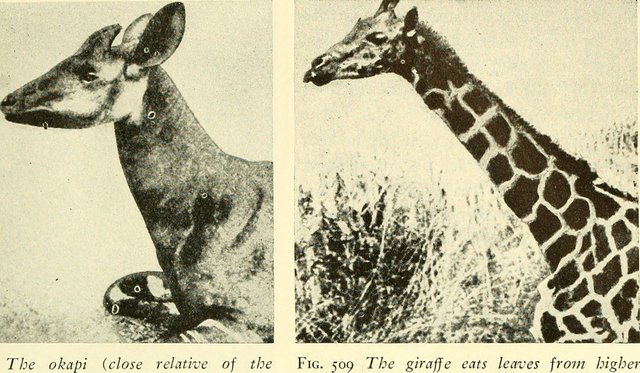
There are a couple of things that influence the behaviour of animals, one of which is the theory of natural selection, a concept coined by Charles Darwin in 1859 when he noted that somehow, the environment played a big role in determining which life form would survive and which would perish. Basically, changes take place and life has to adapt to keep on living. The ones who can develop features that are advantageous to their subsistence, live. Whereas, the ones who cannot, die off. Soon, the only life forms left around are the ones who could adapt to those changes.
These changes could come in form of scarcity of food, a totally new environment or even a change in leadership, as in a pride of lions. The cub grows to chase the older lions away, kill off the cubs so the female lions would mate with him. All of that in order to ensure he gets offsprings of his own. Hence, it is safe to say natural selection doesn't necessarily favour a particular species. Rather, it favours the survival of particular individuals of a species. Only the tall necked giraffe would live if grasses came short in supply on the ground and on short trees. In times of scarcity, Bullfrogs have been observed to swallow each other. All of these are examples of how natural selection and the will to survive affects the behaviour of animals.

Learned vs 'Gened'!
Here's the 20-20 question that has brought up controversial discussions by scientists over the last century:
Are behaviours learned or determined by genes?
While some argued that most behaviours were genetically programmed, and would almost always appear in every individual of a species, the other group maintained that it is rather predicated on their environment and experiences over time. Whichever end of the rope you decide to tug on, perhaps you should know that the two views are largely settled now. Both sides were correct and studies have proven that both genetic heredity and learning play significant roles in shaping the final behaviour of an individual or general species.

On innate behaviours
By inherited behaviours, we simply mean innate behaviours that are genetically hardwired in an organism and are usually performed in response to a cue without any prior experience.
One of the simplest examples of innate behaviours is relfex actions such as knee-jerk. Basically, we all seem to respond to external reflexes such as pain without even consciously thinking about it. Babies tend to pull every and anything they could come in contact with to their mouths, and as far as science can explain, this behaviour seems to come naturally and isn't taught.
The cuckoo chick fits perfectly into this scenario. Even though the mother never got teach it what to do to beat the competition, somehow, inside it resides information on the next horrible thing to do to survive by pushing other chicks out of the nest!
Also, the method of nest building in birds is purely a genetic trait. Let's take Parrots like the lovebird for example. One species -The Fischer's lovebird- carries its nesting material in its beak. Whereas, a different species of the same bird -The Peach-Faced lovebird- carries its nesting material in its feathers. To further prove that these traits in lovebirds were totally genetic, Biologist William Dilger in the 1960s crossed the lovebirds to create hybrids of both species. The offsprings, when fully matured to build nests of their own, often tried placing their nesting materials in their feathers. Each trial proved that they were rarely going to be successful at that, and eventually, they had to pick the materials with their beaks. This indicated that somehow, the innate nest-building behaviour of the Fischer lovebird had become dominant in the hybrids.

On Learned Behaviour.

Even though behaviours are influenced by genes, it could undergo a modification process known as "Learning". Learning could be seen as a semi-permanent change in the natural behaviour as a result of experiences over time. In many animals (humans included), it is very important in determining the final shape of a behaviour. Learned behaviours, unlike innate ones, are flexible and adaptive. Hence, they can be modified to suit a particular change.
It should be noted that while learning a new trait is possible for every species, it can only be those traits that are within their physical ability. You could teach it to roll over or give a handshake to people, but you would never find your Dalmatian riding a bike anytime this year, not even in a thousand decades to come!.
Oftentimes, these learned traits are as a result of changes and experiences that tend to disrupt the normal way of things in their surrounding. Say there's a change in the environment, and the methods that once worked for these animals aren't effective anymore, they would have to learn new skills to help them adapt to this change or lose it.
Not all learned behaviours seek to modify an already existing innate behaviour though, some just have to be learned from birth. Take human offsprings for example, the mother breathes and the needed oxygen is passed through the umbilical cord to the baby inside the womb. Once born, they have to learn how to breathe air for the first time in their new environment.
Birds such as Geese and Ducks, have to learn to recognize the parent by spending the first few moments after they were born with her. During these periods, they learn by 'imprinting' on her, and once this is done, they hardly stray far away from their supposed mother and would follow her as she leads them to find food and water as well as protect them from danger.
The Scientist, Konrad Lorenz proved this by raising a group of newly hatched Goslings by hand. He discovered that his geese "imprinted" on him as their mother and would choose to follow him even when given an opportunity to follow a member of their species. It isn't just ducks and geese, even domestic fowls have been known to imprint on movable toys, boxes, and balloons too.
You have probably heard of experiments involving rats in a "Skinner box", experiment by American Psychologist, B. F. Skinner. Skinner placed a rat inside a box with a lever at a corner of the inside of the box. The lever is connected to control an opening where food is released into the box. As soon as the rat begins to explore the box, it accidentally pushes the lever and a pellet of food would appear. At first, the rat would ignore the lever, but whenever it gets hungry, it would move around the box and accidentally it pushes the lever and pellets keep dropping each time. soon, the rat learns to spend most of its time pushing the lever whenever it gets hungry. It just goes direct to the lever and pushes it to obtain food This sort of trial and error learning is called Operant conditioning, because the animal gradually learns through rewards or punishment, whichever the case, and it does play a significant role in its final behaviour.

Conclusion.
If it walks funny like a Penguin, then it is indeed, a Penguin!
To conclude that the roles which various animal behaviours play in nature are 'simply important' would be a huge understatement. Our behaviours aren't just enough to describe us, it is what gives us our identities without the need to ask questions. It gives us away. Behaviours aren't just based on the way they react to stimuli alone, it is also important in communication and socializing too. Without the appropriate behaviours in place (either innate or through development), the interaction of an individual with his immediate habitat and other members of the same species becomes inhibited and hard to do. In humans, there are certain 'offsets' from the normal behaviour such as autism, and studying behaviour patterns could shed insights to developing means to make such people adapt to their surrounding in a number of ways that are almost as natural as could be. All in the bid to appreciate all of life, and to make for a better world.
Thank you.

References
Instinct vs Learned. Khan academy
Inherited traits
Wiki. Behaviourism
Innate vs Learned behaviour. Sciencing.
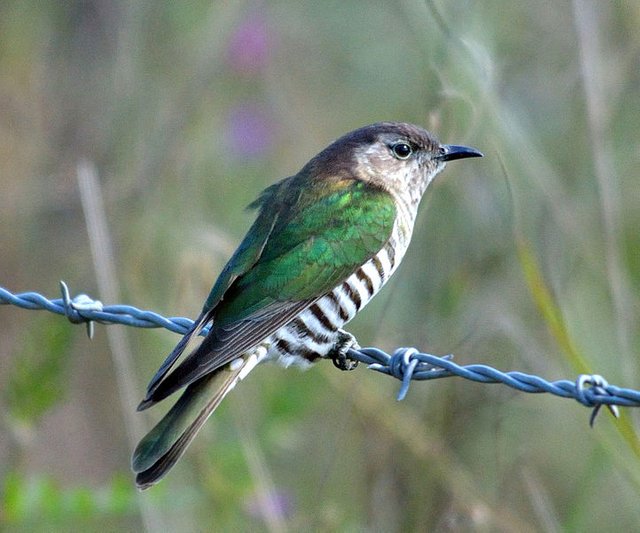
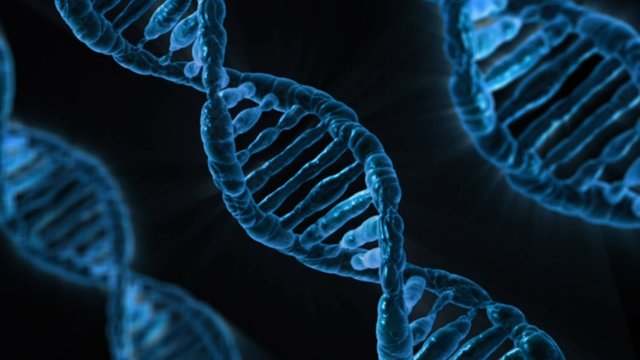
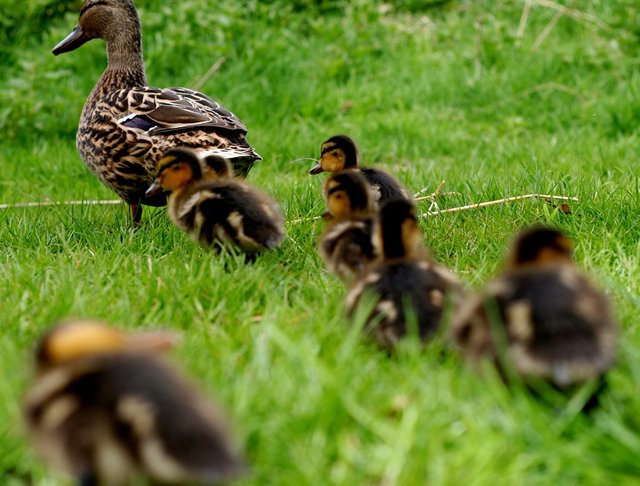
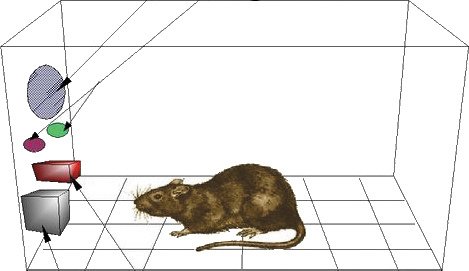
I've really learnt a lot from this great post of yours.
Upvoted and resteemed👍
thank you
Life is a game of survival, behaviours that will be instrumental to the survival of a being are often learnt and passed down to offsprings, to ensure the survival of that species.
This is a highly educative post. Nice job @annieben
that's how it is buddy, innovate or die. Look after you and none else.
@annieben, this is a well-thought debate and I have learned a few things here.
Behaviors are like responses. It is essential to give the right one for the right situtation. Otherwise, living will become a difficult thing.
Yeah, you're correct, a lot comes to how life relates with, and adapts to its environment for subsistence, which is the whole summary of natural selection.
Thanks for reading.
Try to upvote on pple comments on your post...Not just by saying thank you for reading...
You are welcome.
One word: nature :)
Nature is still a code that the scientists and engineers plus a host of the human race are yet to crack 100%.
I like the fact that they do not have 100% knowledge on nature. It keeps us on our toes, trying to prove more facts and get more information. That way, we never really run out of new discoveries.
Thank you for reading 😊😊
You did an amazing work here. Thank you too.
Youve done so much justice to this post that I can only offer praises. Nice work @annieben.
I really enjoyed reading every bit of this.
Thanks deary
It is indeed difficult to use a thing or stay at a location for a while without leaving an "imprint" or trace of our personality. Nature has its way of tabling its data. Nice write-up indeed, well done.
Sometimes it's the location that changes how we react to things.... Thanks for reading dear.
This is how Charles Darwin emphasized the concept of survival of the fittest. The weak shall die and the strong shall live. Being competitive helps you stay in a very cruel world and animals in order to live had to adapt to it's environment no matter what. I cannot stop myself from associating animal behavior from people. I guess we are just the same. We adjust to different types of environment no matter how stressful and difficult it is just for us to survive.

Apt feedback buddy. that's a cool way to look at it, as far as civilization is concerned. for one, competition makes sure we aren't resting on our oars and makes for questions leading to better techs and methods for survival.
Thanks for quipping.
This is quite interesting.. Some actually learn while some were born with it.. Never thought of that before
That's right buddy. You're either 'gened' or schooled. A lot of living things are the combination of the both.
I liked the way you flowed in the piece, it's really an art. Nature, most especially animal behaviors gets me stunned sometimes, you mentioned the cuckoo bird, that's one behavior which got me asking the how and why till date, and also I won't forget that of the elephants who morn their dead when they come across one, wonder if that is learned or gened .
It's fun to read about the wonders of life, and just like you told @greenrun, a 100% knowledge of this won't be fun atall. Nice one annie.
WOW, didn't know elephants had that kind of intelligence to know when a fellow dies. learnt something new, at least. Thank you for reading.